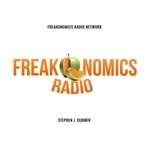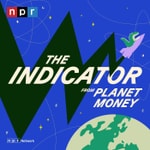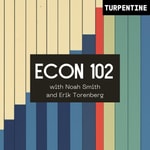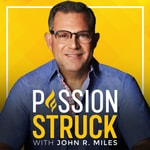The Mixtape with Scott – Détails, épisodes et analyse
Détails du podcast
Informations techniques et générales issues du flux RSS du podcast.

The Mixtape with Scott
scott cunningham
Fréquence : 1 épisode/9j. Total Éps: 133

causalinf.substack.com
Classements récents
Dernières positions dans les classements Apple Podcasts et Spotify.
Apple Podcasts
🇬🇧 Grande Bretagne - careers
08/08/2025#50🇬🇧 Grande Bretagne - careers
07/08/2025#78🇨🇦 Canada - careers
28/07/2025#100🇫🇷 France - careers
04/06/2025#87🇬🇧 Grande Bretagne - careers
23/04/2025#94🇨🇦 Canada - careers
03/04/2025#91🇩🇪 Allemagne - careers
26/03/2025#95🇩🇪 Allemagne - careers
09/03/2025#69🇩🇪 Allemagne - careers
08/03/2025#98🇩🇪 Allemagne - careers
01/03/2025#96
Spotify
Aucun classement récent disponible
Liens partagés entre épisodes et podcasts
Liens présents dans les descriptions d'épisodes et autres podcasts les utilisant également.
See allQualité et score du flux RSS
Évaluation technique de la qualité et de la structure du flux RSS.
See allScore global : 59%
Historique des publications
Répartition mensuelle des publications d'épisodes au fil des années.
S4E2: N. Greg Mankiw, Macroeconomics, Harvard
mardi 10 septembre 2024 • Durée 01:12:04
Greetings! Today’s guest on the Mixtape needs no introduction, but I guess I will anyway. N. Greg Mankiw is a household name to many of us in economics. Either you are a macroeconomist, and his work in new Keynesian economics was something that you had come to know extremely well, or you are literally every other economist, and his principles of economics textbooks you know backwards and forwards because it was either the book you studied as a sophomore in college, or probably even more common, it was the book you used to learn how to teach economics. This interview was a lot of fun, and it kind of fits in a way with something that I keep gravitating towards which is to talk to people in economics who have written textbooks — people like Bill Greene, Mas Col-ell, Jeff Wooldridge, Angrist and Pischke. Thanks again for tuning in.
And I know I said I was going to move to doing these every other week, but man does it seem like it’s been a long time since I’ve done one, so I’m not sure but I will have to decide if I can handle doing them only every other week. We’ll see.
Scott's Mixtape Substack is a reader-supported publication. To receive new posts and support my work, consider becoming a free or paid subscriber.
Get full access to Scott's Mixtape Substack at causalinf.substack.com/subscribe
S4E1: Janet Currie, Health and Children, Princeton
mardi 27 août 2024 • Durée 01:35:36
Welcome the Mixtape with Scott! This is a podcast with a simple objective: listen to the personal stories of living economists who are the primary guests I have on the show. The secondary goal is to follow a thread of people around topics I care about and allow a patchwork story of the profession to form based on, from and through those personal narratives. This is the 105th episode of the podcast, and the first episode of season four. Wow! Time flies.
Today’s guest is name known to most — Dr. Janet Currie. Dr Currie attended Princeton for her PhD, graduating in 1988, spent a large chunk of her career at UCLA, before coming back to Princeton where she is now the Henry Putnam Professor in both the economics dept and the policy school. She’s had an illustrious and impactful career, which is still going, managing a deep portfolio of scientific contributions that I struggle to synthesize it easily. But broadly speaking, her work has focused a lot children, health, mental health, substance abuse and public policy. The work has so many connections over time but also across studies that it was surprising to be honest as we spoke how so much of her work went together, even when it seemed like it wasn’t obvious that it would — even her early work on collective bargaining and teachers unions leads to children, both through schools but also the household bargaining models of the early 80s. Her work on the mental health of children leads naturally into her later work on opiates when you consider the links connect through supply side treatment of attention deficit disorder and supply side prescriptions of opiates. All I could see as we spoke was this giant knowledge graph, like a spider web, connecting papers and topics to one another even when the topics themselves would shift. It was a real joy to have a chance to hear this career in her own words.
One of the themes of the podcast has been the credibility revolution, which is a paradigm regarding empirical work that emerged in the 1970s at Princeton University. It is largely associated with the Industrial Relations Section, Orley Ashenfelter, and his many students and the students of his students. And Janet was an Orley student, as well as the student of one of Orley’s students, the 2021 Nobel Laureate David Card. Having her on here, and the openness with which she shared her story with me, allowed me to learn more about the program at the time she was there, for which I am grateful on top of being grateful for hearing her story.
Thank you for your support and I hope this interview is one you enjoy. It’s 90 minutes but it’s a high mean low variance 90 minutes in my opinion!
Scott's Mixtape Substack is a reader-supported publication. To receive new posts and support my work, consider becoming a free or paid subscriber.
Get full access to Scott's Mixtape Substack at causalinf.substack.com/subscribe
S3E19: Sarah Miller, Health Economist, Michigan
mardi 28 mai 2024 • Durée 01:10:19
This week's episode of "The Mixtape with Scott" features a conversation with Sarah Miller, a health economist at the University of Michigan. Sarah has made significant contributions to the field of economics, particularly in understanding gender dynamics and reproductive health. Her research has been influential in shaping public policy, and her groundbreaking study on the effect of Medicaid on mortality, conducted with Laura Wherry and Norman Johnson and published in the Quarterly Journal of Economics, stands out as a seminal work. In this episode, we delve into her academic journey, the personal experiences that have shaped her interests, and the impactful research that drives her career.
Beyond her impressive scholarly achievements, we explore the passion and curiosity that fuel her work, as well as her vision for future research. Sarah shares reflections on her personal life, offering a glimpse into the challenges and triumphs that have defined her path. Join us as we uncover the story of a dedicated scholar whose work not only advances economic theory but also has tangible impacts on public health and gender equity. This episode was a thought-provoking exploration of Sarah Miller's remarkable career and the innovative research that continues to inspire her.
Scott's Substack is a reader-supported publication. To receive new posts and support my work, consider becoming a free or paid subscriber.
Get full access to Scott's Mixtape Substack at causalinf.substack.com/subscribe
Interview with Peter Hull, econometrician at Brown University, about economics, causal inference and instrumental variables
lundi 25 avril 2022 • Durée 57:52
Peter Hull is young econometrician at Brown University who writes about a variety of applied topics such as education, labor and criminal justice. Most of his work manages to simultaneously reveal something new about a phenomena while also extending our methodological understanding of causal inference. In this episode of Mixtape: the Podcast, Peter and I talk about growing up in Maine as a child spending time near the water and outdoors as well as in mathematics. We talk about the unexpected journey he made into economics as a college student when he saw its potential to meaningfully inform public policy, as well as econometrics' ability to answer causal questions. We talk about his love of instrumental variables in particular, the potential outcomes model, causal inference and a new paper of his with Michal Kolesar and Paul Goldsmith-Pinkham on interpreting regressions with multiple treatment variables.
Get full access to Scott's Mixtape Substack at causalinf.substack.com/subscribe
Interview with Guido Imbens, co-recipient of the 2021 Nobel Prize in Economics
mercredi 20 avril 2022 • Durée 56:39
Guido Imbens is the Applied Econometrics Professor at Stanford University's economics department and business school, as well as a co-recipient of the 2021 Nobel Prize in Economics for his work on the local average treatment effect and instrumental variables in his 1990s era work with Josh Angrist. In this interview we discuss that time in his life, his influences, his career and collaborations over the last several decades. Dr. Imbens is one of the more enjoyable people I've had the pleasure of meeting in all of economics.
Get full access to Scott's Mixtape Substack at causalinf.substack.com/subscribe
Interview with William ("Sandy") Darity about stratification economics and his life
mardi 12 avril 2022 • Durée 56:46
In this 8th episode of Mixtape: the Podcast, I interviewed Sandy Darity, the Samuel DuBois Professor of Public Policy at Duke’s Sanford School and pioneer in a framework within economics called "stratification economics". Stratification economics focuses on the determinants of group-level inequality rooted in group identity, relative position within society, and historic inequalities that compound over time. But we also discuss his love Tarheels basketball, growing up in the Middle East and the degree to which scarcity should be the foundation of economics or not.
Get full access to Scott's Mixtape Substack at causalinf.substack.com/subscribe
Interview with Josh Angrist, 2021 Recipient of the Nobel Prize in Economics
mercredi 30 mars 2022 • Durée 57:39
Episode 7 of Mixtape: the Podcast. I interview Josh Angrist, winner of the 2021 Nobel Prize in economics, Ford professor of economics at MIT, and director of the MIT Blueprint Labs. In this interview, we discuss a range of topics such as being bored and aimless as a young man, his time in the Israeli army as a paratrooper, his time at the 1980s Princeton Industrial Labor Relations group, his collaborations with fellow Nobel laureate Guido Imbens and the late Alan Krueger, as well as the econometric contributions he made to our understanding of causal inference and instrumental variables for which the Nobel Committee awarded him the prize. A pioneer in many ways who through his scholarship, mentoring, and proselytizing of causal inference and applied methodology, Josh Angrist is arguably one of the most important figures in empirical microeconomics of the last 50 years and a delightful person to interview.
Get full access to Scott's Mixtape Substack at causalinf.substack.com/subscribe
Interview with Orley Ashenfelter, the legend, the GOAT
vendredi 18 mars 2022 • Durée 55:42
Orley Ashenfelter is arguably the founding father of one of the most influential empirical movements in the modern era -- the so-called credibility revolution. He was the adviser to two Nobel laureates (Josh Angrist and David Card), and guided the Princeton Industrial Relations group for years. Arguably if not one of the most important labor economists of his generation, then at least one of the sharpest. In this interview we talk about his influences, his discovery of the famed Ashenfelter Dip, the popular research design difference-in-differences and more. Check it out!
Get full access to Scott's Mixtape Substack at causalinf.substack.com/subscribe
Interview with Jonathan Meer and Jeremy West about the minimum wage
vendredi 18 mars 2022 • Durée 53:53
When I think of the economics of the minimum wage, I think of Ted Lasso season 2 when we learn of a pretend new book by Brené Brown, "Enter the Arena, But Bring a Knife". The economics of minimum wage is not for the faint of heart as the question of its effect, both in theory and in reality, has been debated fiercely by extraordinarily competent labor economists for decades, and I don't see it ending any time soon. In this interview, I talk with two economists linked to Texas A&M's economics department -- Jonathan Meer and Jeremy West -- an important paper in the minimum wage literature published in a 2016 issue one of the top labor economics journal, the Journal of Human Resources, about their work on the minimum wage. Check it out and prepared to have your priors confirmed and/or challenged about this important program!
Get full access to Scott's Mixtape Substack at causalinf.substack.com/subscribe
Interview with Sophie Sun, econometrician and recent graduate of MIT
vendredi 18 mars 2022 • Durée 31:16
A panic attack spread across empirical social science fields like economics from 2008 to 2022 as a result of a half dozen econometrics articles analyzing the most popular non-experimental methods in causal inference -- the difference-in-differences design. The reason? The way researchers had been used it probably wasn't right because they'd been using the wrong tools to do it. One of those econometricians was the brilliant Sophie Sun, a recent graduate of MIT's famous economics department who with Sarah Abraham worked on the problem of analyzing what are called "event studies" using a traditional version of the ordinary least squares model called "twoway fixed effects". This paper both helped expose problems with that approach, but graciously, also proposed solutions. A shot heard around the world! In this interview, we learn more about Sophie's work on the subject, where the ideas came from, and her own interpretation of what she helped create.
Get full access to Scott's Mixtape Substack at causalinf.substack.com/subscribe









